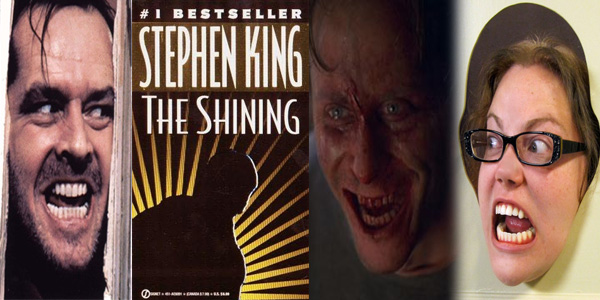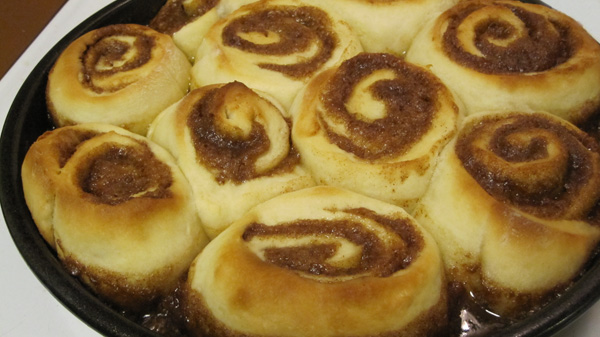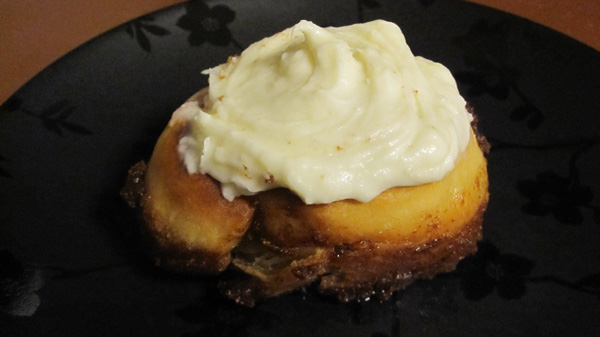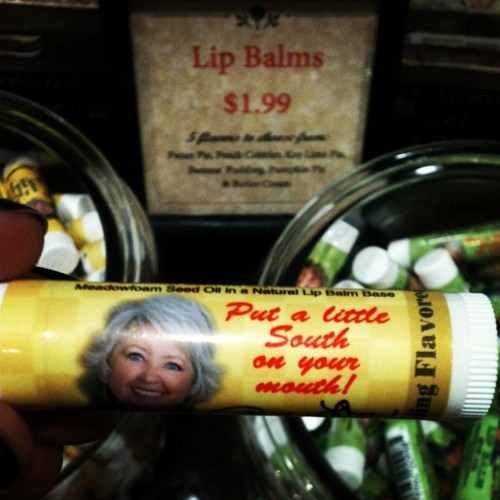
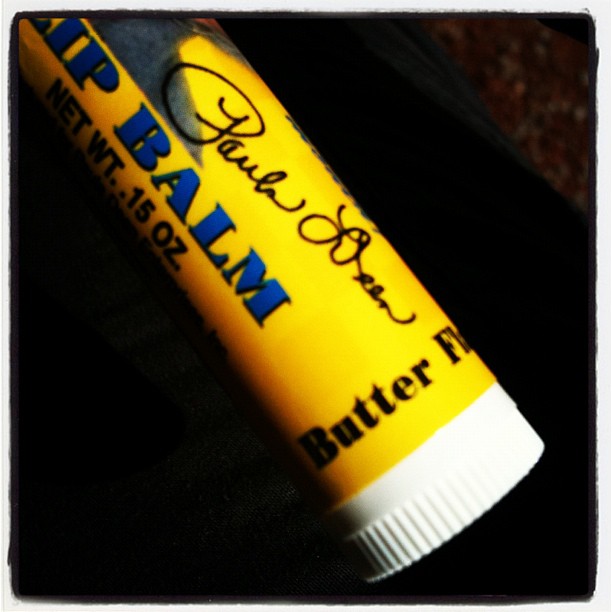
Paula Deen branded Butter Flavored Lip Balm. Things to consider:
Pro: Having it on your lips might be like eating a piece of really buttery toast all day, or like a delicious buttery kissing lubricant
Cons: The idea of rubbing your lips with a stick of butter (real or lip balm-y), the scent of artificial butter (especially over a long period of time)

